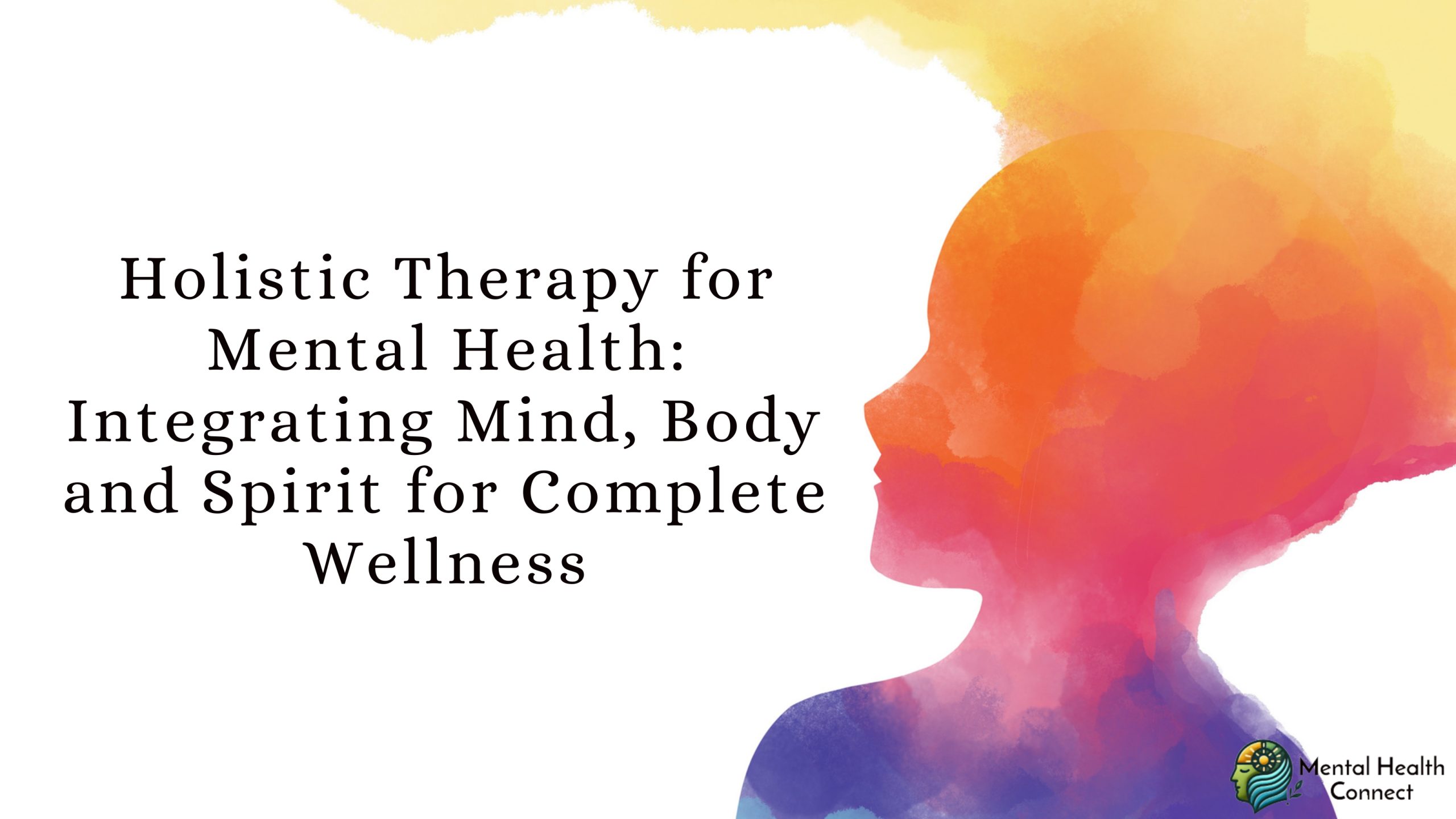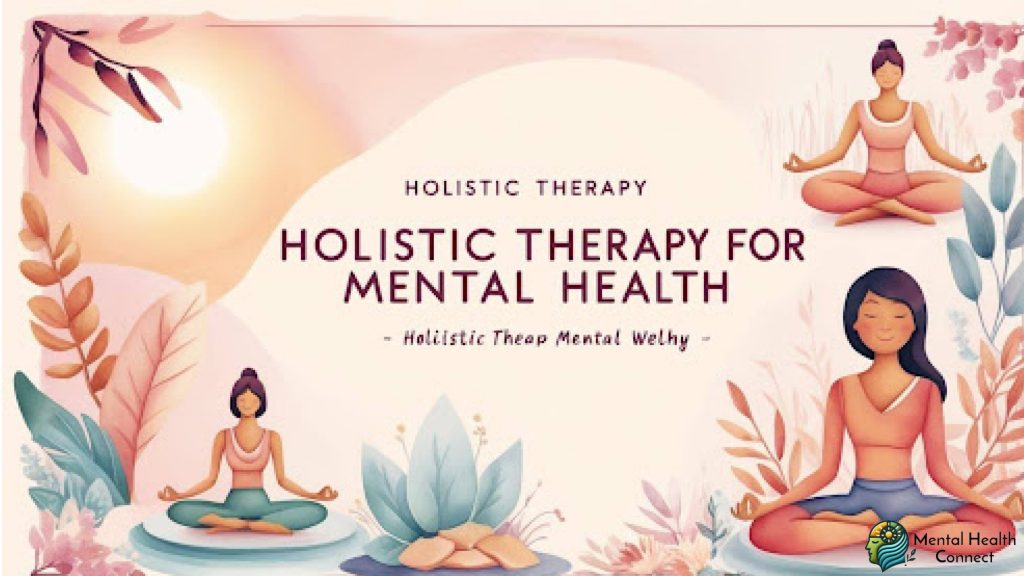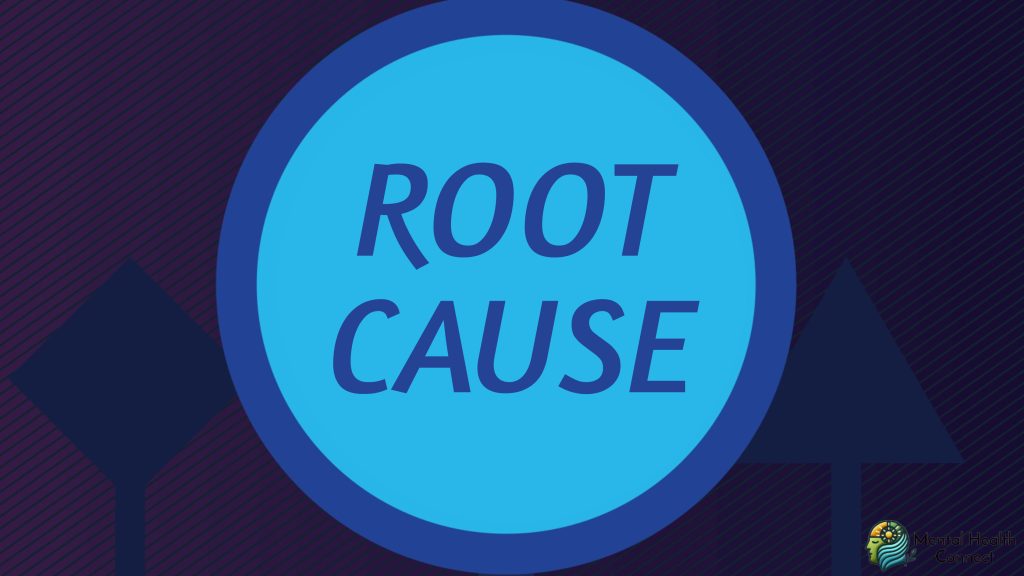Holistic Therapy for Mental Health: Integrating Mind, Body, and Spirit for Complete Wellness

Mental health challenges affect millions worldwide, yet conventional treatments often address symptoms rather than the whole person. Holistic therapy for mental health offers a refreshing alternative by considering the complete individual mind, body, and spirit—rather than isolating mental health from other aspects of wellness. This integrative approach recognizes that psychological well-being is interconnected with physical health, social connections, environmental factors, and spiritual dimensions. As interest in complementary and alternative therapies grows, holistic mental health approaches are gaining recognition for their effectiveness in treating conditions like anxiety, depression, and trauma while empowering individuals to participate actively in their healing journey.
What is Holistic Therapy for Mental Health?

Holistic therapy for mental health is an approach that treats the entire person rather than just addressing symptoms or specific mental health diagnoses. This comprehensive methodology acknowledges that psychological well-being is influenced by multiple factors, including:
- Physical health and nutrition
- Spiritual beliefs and practices
- Environmental influences
- Social connections and relationships
- Personal history and experiences
Common Holistic Therapy Modalities
Several therapeutic approaches fall under the holistic umbrella:
- Mindfulness and Meditation: Practices that cultivate present-moment awareness and acceptance
- Yoga and Movement Therapies: Combining physical postures with breath control and meditation
- Acupuncture and Traditional Chinese Medicine: Ancient practices focusing on energy flow and balance
- Nutritional Therapy: Addressing the gut-brain connection through dietary adjustments
- Nature Therapy: Utilizing the healing properties of natural environments
- Art and Music Therapy: Creative expression as a means of processing emotions
- Energy Healing: Practices like Reiki that work with the body’s energy fields
The Integration with Conventional Approaches
Holistic therapy doesn’t necessarily replace conventional treatments like psychotherapy or medication. Rather, it often works alongside them, creating a more complete treatment plan that addresses all aspects of a person’s well-being.
Why is Holistic Therapy Important for Mental Health?

The holistic approach offers several advantages over purely conventional mental health treatments:
Addresses Root Causes, Not Just Symptoms
Rather than simply managing symptoms, holistic therapy for mental health seeks to identify and address underlying causes of distress, which might include nutritional deficiencies, unresolved trauma, spiritual disconnection, or environmental stressors.
Empowers the Individual
By involving patients as active participants in their healing journey, holistic approaches foster a sense of agency and self-efficacy. Patients learn tools they can use independently to maintain their mental well-being.
Reduces Medication Dependence
While medications play an important role in mental health treatment, holistic approaches may reduce the need for pharmaceutical interventions or enhance their effectiveness when used together.
Minimizes Side Effects
Many holistic treatments carry fewer side effects than conventional medications, making them suitable options for individuals who are sensitive to pharmaceuticals or prefer natural approaches.
Promotes Whole-Person Wellness
The focus on overall well-being means improvements often extend beyond specific mental health symptoms, enhancing quality of life, physical health, and relationships.
How to Incorporate Holistic Therapy into Mental Health Treatment?

Integrating holistic approaches requires thoughtful planning and coordination:
Step 1: Assessment and Goal Setting
Begin with a comprehensive assessment of your mental, physical, emotional, and spiritual well-being. Work with qualified practitioners to establish clear goals for your holistic treatment plan.
Step 2: Build Your Wellness Team
Depending on your needs, your team might include:
- A psychiatrist or psychologist
- A nutritionist or dietitian
- Yoga or meditation instructors
- Massage therapists or acupuncturists
- Spiritual advisors or coaches
Step 3: Create a Daily Practice
Implement small, sustainable holistic practices into your daily routine:
- Morning meditation or mindfulness practice
- Regular physical movement
- Nutritious meals and adequate hydration
- Time in nature
- Journaling or creative expression
Step 4: Monitor and Adjust
Observe what benefits you and what doesn’t. Mental health treatment is not one-size-fits-all, and your holistic plan should be tailored to your unique needs and preferences.
Step 5: Maintain Consistency
Holistic approaches often require consistent practice over time. Build structures and routines that support your continued engagement with beneficial practices.
Best Practices for Holistic Mental Health Therapy

Integrate Multiple Approaches
The most effective holistic treatment plans typically combine several complementary modalities:
- Mind-Body Practices: Meditation, yoga, tai chi, or qigong
- Nutrition and Supplementation: Anti-inflammatory diets, omega-3 fatty acids, probiotics
- Physical Activity: Regular exercise appropriate to individual needs and preferences
- Sleep Hygiene: Consistent sleep schedule and environment optimization
- Social Connection: Community involvement and relationship building
Work with Qualified Practitioners
Ensure that your holistic practitioners are properly trained and credentialed in their fields, particularly when dealing with serious mental health conditions.
Maintain Open Communication
If you’re combining conventional and holistic treatments, keep all your healthcare providers informed about your complete treatment plan to avoid contraindications.
Document Your Journey
Keep a journal of your experiences, noting improvements, challenges, and insights gained through your holistic practices.
Practice Self-Compassion
Healing is rarely linear. Approach your holistic therapy journey with patience and kindness toward yourself.
Common Mistakes in Holistic Mental Health Therapy & How to Avoid Them
Abandoning Conventional Treatment Too Quickly
Mistake: Discontinuing prescribed medications or therapy abruptly in favor of holistic approaches.
Solution: Work with your healthcare provider to safely integrate holistic methods, making changes to conventional treatments only under professional guidance.
Following Unproven or Unsafe Practices
Mistake: Pursuing trendy but unsubstantiated treatments that may waste time and resources or even cause harm.
Solution: Research the evidence base for holistic approaches and prioritize those with scientific support or long-established traditions of safe use.
Expecting Instant Results
Mistake: Becoming discouraged when holistic approaches don’t yield immediate improvements.
Solution: Understand that many holistic therapies build cumulative benefits over time and require consistent practice.
Taking a Fragmented Approach
Mistake: Adding various holistic practices without a coherent strategy or integration.
Solution: Develop a coordinated plan with the help of qualified practitioners who can ensure your various treatments work harmoniously together.
Neglecting Physical Health
Mistake: Focusing solely on mental or spiritual aspects while ignoring physical well-being.
Solution: Remember that nutrition, sleep, and physical activity form the foundation of mental health and should be core components of any holistic plan.
Future Trends & Predictions in Holistic Mental Health Therapy
Integration into Mainstream Healthcare
As evidence accumulates supporting the effectiveness of holistic approaches, we can expect greater integration into conventional healthcare systems, with insurance coverage expanding for proven complementary therapies.
Technology-Enhanced Holistic Practices
Digital tools like apps, wearables, and virtual reality are increasingly supporting holistic mental health practices, making them more accessible and measurable.
Personalized Holistic Protocols
Advances in genetics, microbiome research, and biomarkers are enabling more personalized approaches to holistic mental health, allowing practitioners to tailor recommendations to individual biological needs.
Community-Based Healing Models
Recognition of the importance of social connection and community support is driving the development of group-based holistic mental health programs that address both individual and collective well-being.
Environmental Mental Health
Emerging research on the impact of environmental factors from air quality to green space access is expanding holistic mental health to include ecological considerations and nature-based therapies.
Frequently Asked Questions About Holistic Therapy for Mental Health
Is holistic therapy effective for serious mental health conditions like clinical depression or bipolar disorder?
Holistic therapy can be beneficial as a complementary approach for serious mental health conditions, but it’s generally most effective when combined with conventional treatments such as medication and psychotherapy for these conditions. Always work with qualified mental health professionals when addressing serious diagnoses.
How long does it typically take to see results from holistic mental health approaches?
Timeframes vary widely depending on the individual and the specific approaches used. Some people notice improvements in symptoms like anxiety or sleep disturbances within weeks, while deeper healing and transformation may unfold over months or years of consistent practice.
Are holistic therapies covered by insurance?
Coverage varies by insurance provider and plan. Some holistic approaches like acupuncture and nutrition counseling are increasingly covered by insurance plans, while others may require out-of-pocket payment. Check with your insurance provider about specific coverage options.
How do I find qualified holistic mental health practitioners?
Look for practitioners with recognized credentials in their field, experience working with mental health conditions, and ideally, those who collaborate with conventional healthcare providers. Professional associations for integrative medicine, holistic nursing, or specific modalities like acupuncture can provide directories of qualified practitioners.
Can children benefit from holistic mental health approaches?
Yes, many holistic approaches can be adapted appropriately for children and adolescents. Age-appropriate mindfulness practices, art therapy, movement-based therapies, and nutrition interventions have shown benefits for children’s mental health when implemented properly.
How do I know which holistic approaches are right for my specific situation?
Working with an integrative mental health professional can help you identify the most appropriate holistic approaches based on your specific symptoms, history, preferences, and needs. Many people benefit from trying different modalities to discover what resonates most strongly with them.
Can holistic therapy help with trauma recovery?
Many holistic approaches, particularly body-centered therapies like yoga, somatic experiencing, and EMDR, have shown promise for trauma recovery. These approaches recognize that trauma is stored in the body and work to release traumatic patterns through awareness, movement, and nervous system regulation.
Holistic therapy for mental health represents a profound shift in how we understand and address psychological well-being. By honoring the interconnectedness of mind, body, and spirit, this approach offers a more complete path to healing than symptom management alone. The integration of traditional wisdom with contemporary scientific understanding creates powerful opportunities for addressing mental health challenges at their roots while empowering individuals with practical tools for ongoing wellness. As research continues to validate many holistic practices, the false dichotomy between conventional and complementary approaches is dissolving, making room for truly integrative care that draws from the best of all healing traditions. By embracing holistic therapy for mental health, we move toward a more humane, effective, and sustainable model of psychological care.
Ready to transform your mental well-being through holistic approaches? Take the first step today! Join our community of holistic health practitioners and fellow wellness seekers by subscribing to our newsletter for expert tips, free guided meditations, and exclusive workshop invitations. Don’t wait for a crisis to prioritize your mental health download our free 7-Day Holistic Mental Wellness Starter Guide now and begin your healing journey with simple, powerful practices you can implement immediately. Your complete well-being mind, body, and spirit deserves attention. Connect with us today and discover how holistic therapy can create lasting positive change in your mental health and overall quality of life!
-
 How to Support Someone with OCDApril 17, 2025
How to Support Someone with OCDApril 17, 2025 -


Leave a Reply